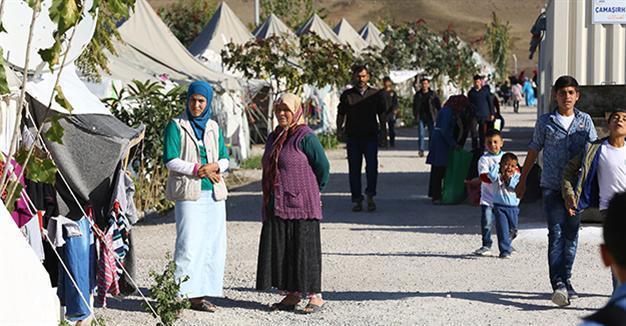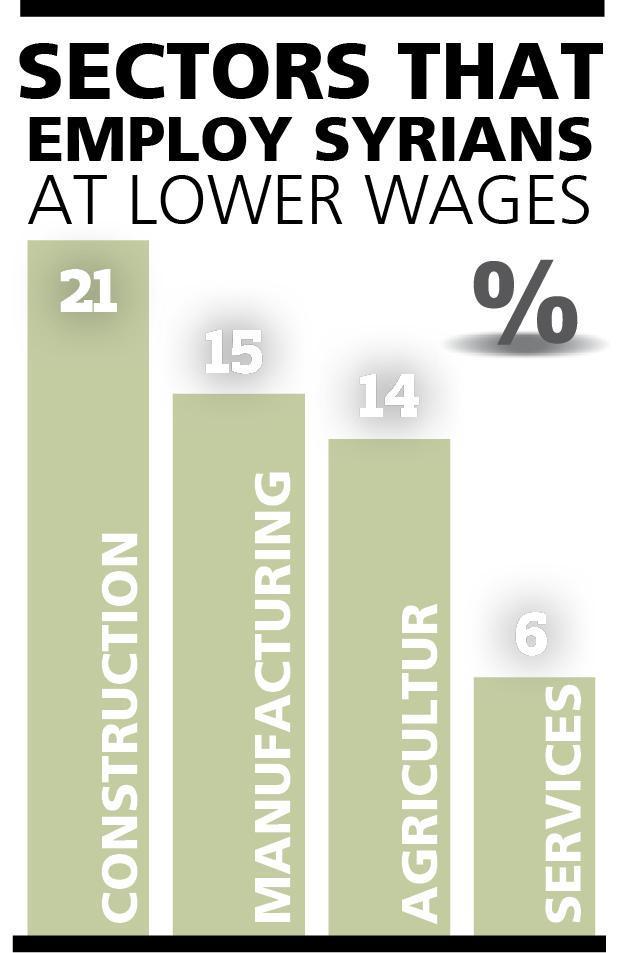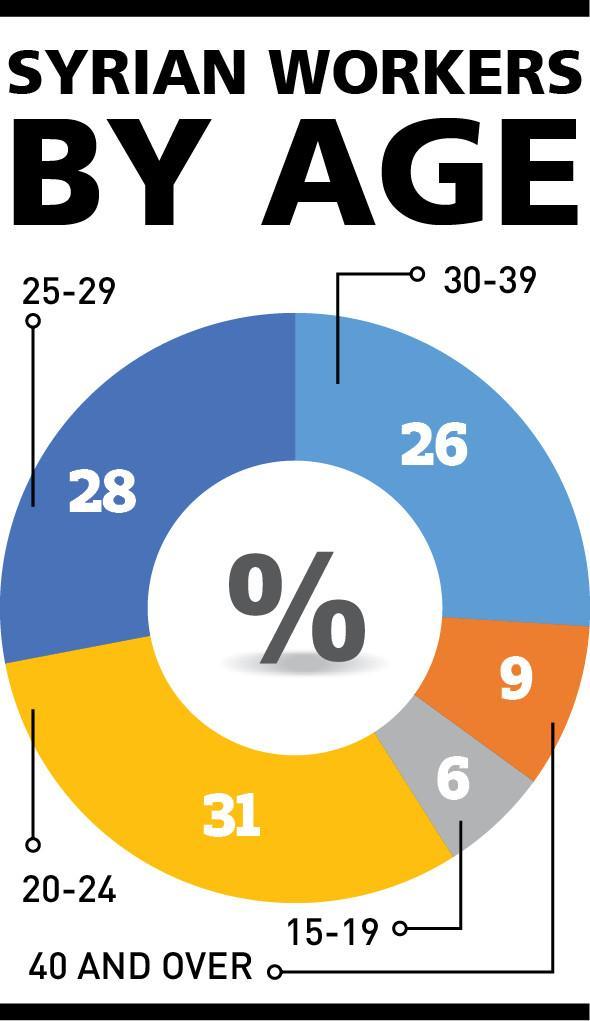ILO calls for employment of Syrian refugees to be turned into opportunity
ANKARA

Syrian Refugees go about their daily lives at the refugee camp in Osmaniye on December 15, 2015. AFP Photo
There is a need for comprehensive measures to regulate the employment of Syrian refugees in Turkey, in order to minimize the negative impact on the local labor market and to turn the issue into an opportunity rather than a threat, according to a new report by the International Labor Organization (ILO). The report comes out as the number of Syrian workers has risen dramatically in a number of Turkish provinces.“The employment of Syrians is already a reality on the ground. In the absence of the possibility to work legally, they are working informal, low-quality, low-paid jobs, pushing wages down for the local population and endangering workplace peace,” said ILO Turkey Office Numan Özcan at the launch of the report.
“More than 50 percent of the population of Kilis, 25 percent of the population of Şanlıurfa and 22.5 percent of the population of Gaziantep is made up of Syrians. These cities are beyond their infrastructure capacity particularly in the areas of municipal services, health, education and social services. Getting access to social services both for host communities and for Syrians is becoming increasingly problematic,” the ILO report states.
“The increased number of refugees in Turkey necessitates the development of medium and long-term programs that help planning, coordinating public services, and developing institutional capacity,” it adds.
Some 27 percent of businesses surveyed by ILO in Şanlıurfa employ Syrians, corresponding to 3.2 percent of total employment. Some 77 percent of working Syrians in the province are men, while 23 percent are women.
 In Şanlıurfa, more than half of the Syrians are employed in the manufacturing sector (51 percent), followed by services (33 percent) and agriculture (10 percent) One third (33 percent) earn below the official minimum wage in Turkey. Some 32 percent of employers in the province told the ILO that they would never employ Syrians.
In Şanlıurfa, more than half of the Syrians are employed in the manufacturing sector (51 percent), followed by services (33 percent) and agriculture (10 percent) One third (33 percent) earn below the official minimum wage in Turkey. Some 32 percent of employers in the province told the ILO that they would never employ Syrians. While employers in Şanlıurfa generally have a positive view of employing Syrians, language problems are cited as the biggest obstacle (50 percent), followed by social adaptation (32 percent) and work permits (24 percent).
Meanwhile, the ILO field study on Syrian children working on the streets in Ankara showed that the school enrollment rate of Syrian children is closely linked to the levels of their parents’ education and welfare. If their parents are working informally or for low wages, Syrian children are more likely to work on the streets.
Syrian children face language problems, which make it difficult for them to make use of social facilities and opportunities. As a result, interventions limited to economic assistance without psychosocial support and counseling are inadequate, according to the ILO.
Approximately 20 percent of Syrians living in formal camps and centers in Gaziantep are working temporarily or permanently in service, industry and agricultural enterprises within the province.
The adaptation of these individuals into the labor market by equipping them with relevant vocational knowledge and skills is of vital importance, the ILO states.
 “In this study, detailed field research has been conducted to develop a vocational education model toward Syrians living in sheltering centers. In particular, six fields of profession have been identified for trainees likely to be employed, taking the needs of the labor market and the skills of Syrians into consideration. Short-term vocational courses are suggested to be delivered in following fields: Shoe-making, welding (3rd degree), Gaziantep copper hand-craftsmanship, weaving, readymade garment machine operation, service personnel assistantship, and web designing. As part of the model, the study also proposes the establishment of a sub-working group under Provincial Employment and Vocational Training Boards, to be responsible for the coordination of relevant public institutions regarding Syrians’ education and employment,” the reports states.
“In this study, detailed field research has been conducted to develop a vocational education model toward Syrians living in sheltering centers. In particular, six fields of profession have been identified for trainees likely to be employed, taking the needs of the labor market and the skills of Syrians into consideration. Short-term vocational courses are suggested to be delivered in following fields: Shoe-making, welding (3rd degree), Gaziantep copper hand-craftsmanship, weaving, readymade garment machine operation, service personnel assistantship, and web designing. As part of the model, the study also proposes the establishment of a sub-working group under Provincial Employment and Vocational Training Boards, to be responsible for the coordination of relevant public institutions regarding Syrians’ education and employment,” the reports states.
















